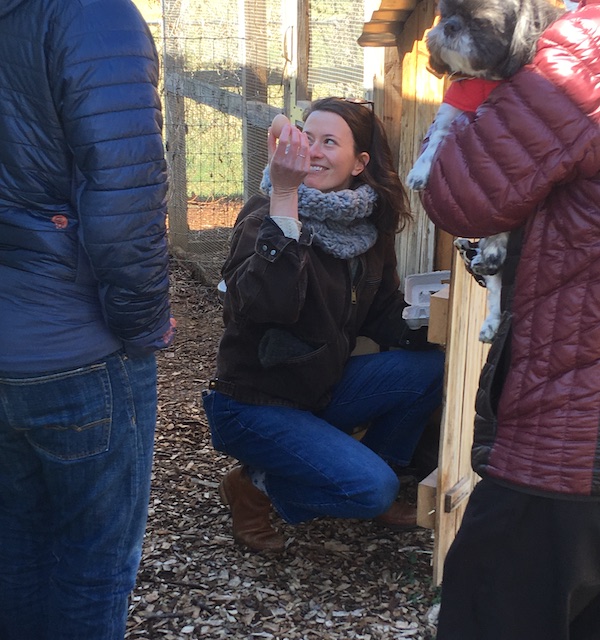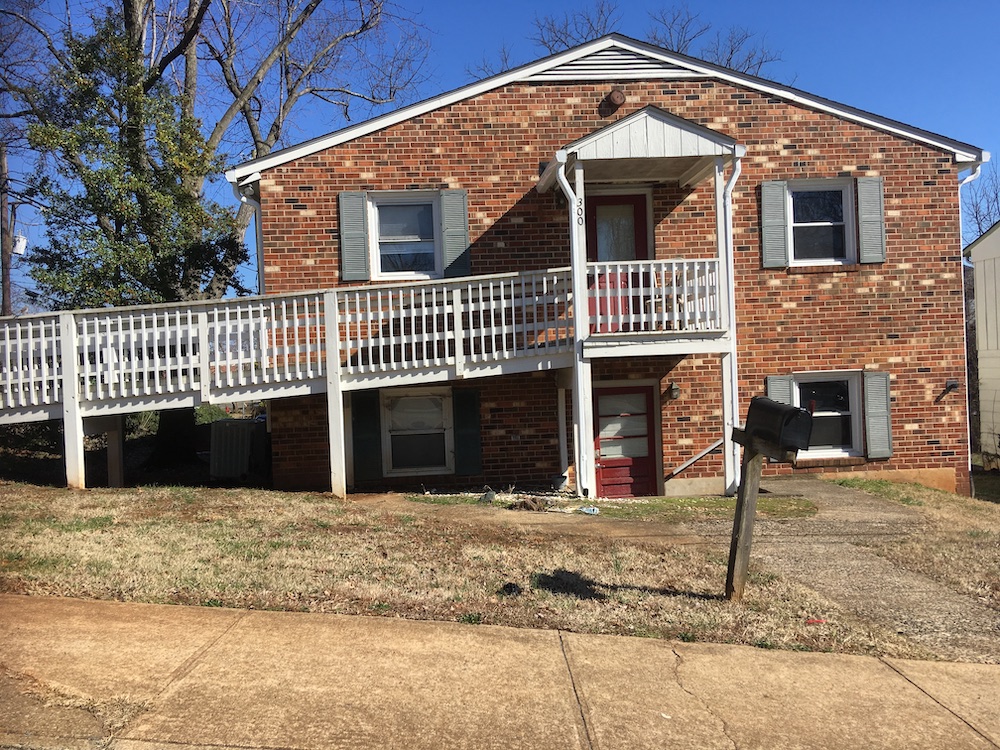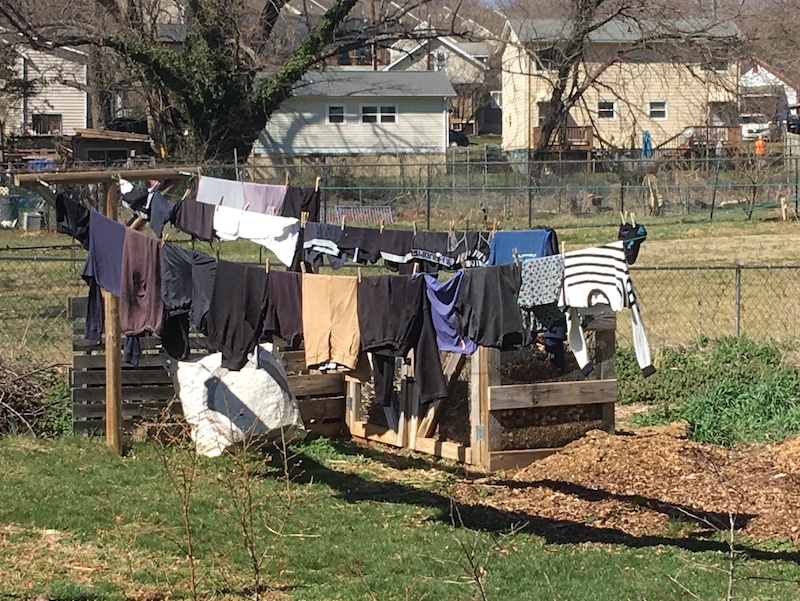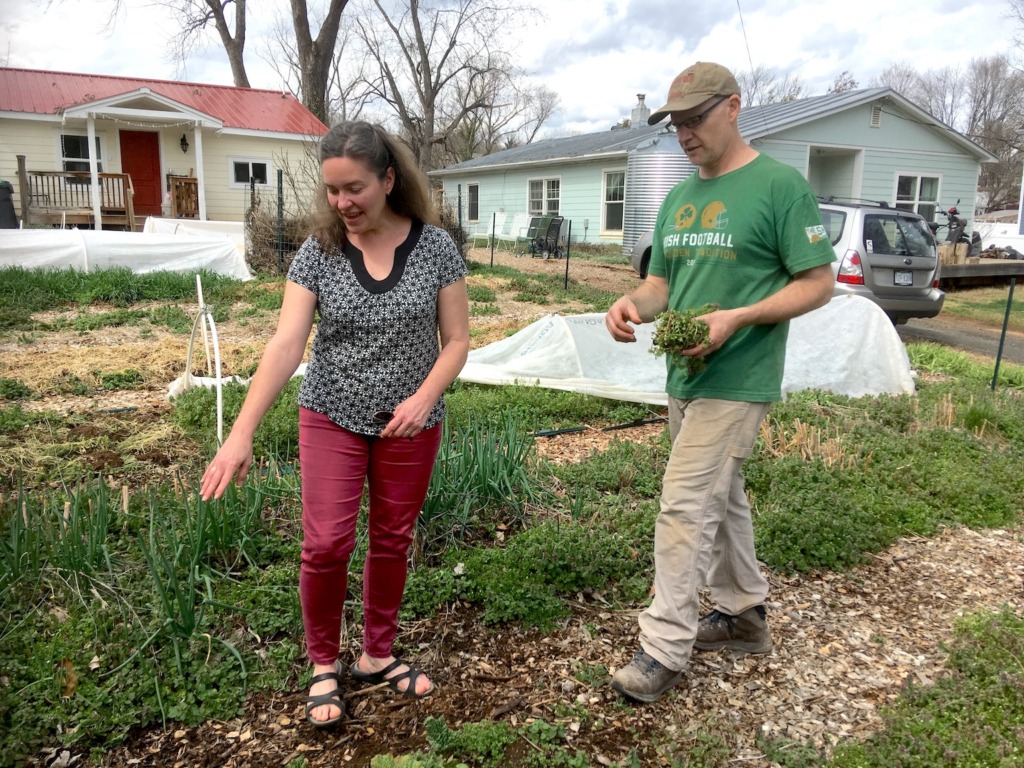Charlottesville Catholic Worker community lives in ‘right relationship’ with God, others, Earth
In a diverse, working-class neighborhood in Charlottesville, the spirit of social activist and Servant of God Dorothy Day lives in Casa Alma — a Catholic Worker community dwelling in three small houses and their shared yards.

Founded in 2009 by former Maryknoll lay missionaries Steve and Laura Brown, Casa Alma is an all-volunteer, nonprofit urban homestead that welcomes low-income families in need of housing, mostly African American or Latina single parents and their children, into an eco-friendly setting.
“At Casa Alma, we are exploring what it means to live in ‘right relationship’ with God, with others and with the earth,” Laura explained. “Those themes and elements are important to us.”
One of nearly 200 Catholic Worker communities worldwide, including the other Virginia locations in Norfolk, Spotsylvania and Louisa, Casa Alma follows the principles established in 1933 in New York City by Day, Peter Maurin and their volunteer colleagues to live the charity and justice of the Gospel. It is guided by peace and nonviolence, social justice, simple living, care for creation, and service to and fellowship with the poor.
Temporary residents, known as guests, who come to Casa Alma stay rent-free in one of two hospitality houses for up to two years. During that time, they are often able to save for affordable housing, pay down debt and plan for the future. They also practice skills such as gardening and living sustainably.
At the central community house where the Brown family lives, guests receive community support through prayer, shared meals, discussions, musical gatherings and other public events.
Resident volunteers who work on the property also live there; they all speak Spanish. Heidy Coleman and her 12-year-old daughter, Linda, originally from Guatemala, returned to work at Casa Alma after having been guests in 2017. Claire Hitchins and her fiancé, Julio Quispe, do much of the gardening work. Hitchins, a musician, holds concerts onsite as well. The Browns raised their three daughters, Emily, Anna and Ella, at Casa Alma. Ella, a high school junior, still lives there.
On the 0.6-acre property that backs up to Rives Park, the resident volunteers stay busy year-round: vegetables and herbs grow in the front-yard garden, fruit trees blossom in the back-yard orchard, black currants and hazelnut bushes sprawl along a back fence, 12 beehives produce honey and 11 hens lay eggs. All food grown or raised at Casa Alma is shared there, at a second housing property called Carlton House, and with neighbors and friends.
Dire need for housing
Guests are referred to Casa Alma through a network of area pastors, social workers, guidance counselors and others that has been built over many years.

When the Browns, who had lived in Charlottesville prior to their missionary service in Chile, returned in 2009, they had already conceived the idea of forming a Catholic Worker entity.
“We wanted a life rooted in faith and community. We wanted our Maryknoll mission to continue,” Laura explained.
They asked at their parish, Church of the Incarnation, and throughout the city: “What are the greatest needs not being met here?” The consistent response: affordable housing for low-income families.
They found the property on Nassau Street they wanted to buy and paid for it from their own savings and gifts from their parents. They started renovating with volunteer help, and began building that network.
There is a process to place a family, which is most often a single mother and two children. During the first visit, the family learns about the Casa Alma community and discusses whether they can see themselves living there. They learn about its sustainable practices – such as conserving water and composting food waste – and see the common elements: a food pantry, washing machine and drying line. They also learn that others are often there to attend events or volunteer.
“A bunch of students might be here doing gardening outside your window,” Steve said. “It’s a little more public than a private home.”
Visitors share their stories, too, sitting in the front room of the simple blue house with Catholic Worker art on the walls.
“Often they need to sit across from someone and talk about the most painful thing in their lives,” Laura said.
“Alma” means “soul” in Spanish and “kind” and “nourishing” in Latin.
“By calling it Casa Alma, we wanted it to feel familiar and welcoming to our Spanish- speaking guests simply by the name,” Laura explained. “And the Latin is a connection to our Catholic faith.”
An inheritance from Steve’s great-aunt Alma Dugdale, given by his parents, helped finance the property. The name also was a way to honor her memory, Steve said.
Additional outreach
Last year, the Browns were presented with an opportunity of purchasing and managing a multi-unit dwelling. Partnering with local developer Chris Murray, BMC Property Management and Virginia Organizing, and with support from the Charlottesville Affordable Housing Fund, the project would provide reduced-rent housing while also offering a sense of community. The group purchased the building in December and began renovations immediately.
In the two-story, 10-unit building, built in 1984, each apartment has one bedroom and one private bathroom, with two common kitchens and living rooms as well as laundry facilities.
Eight residents who were already there have chosen to stay. When each of the two vacant apartments is completed, two residents will have the option of moving in so their vacant spaces can be updated. Each apartment will be completed in this way.
The building on Carlton Road is just a half mile from Casa Alma to allow easy interaction and sharing of food, as well as accessibility of resident volunteers. Coleman, who manages the site, checks on residents and leads activities, such as cooking community dinners.
“I love to help people at Carlton House,” Coleman said. “Some of them are elderly and need encouragement and faith. We support people to look up and have hope.”
Abundance of generosity
As a nonprofit, Casa Alma relies on donations, and others’ generosity has helped it grow. In the early years, several grants funded specific needs, such as the tall cistern built to collect roof rainwater for the garden. Local churches provide some goods and funding, but the majority of support comes from individual donations.

To pay for personal and household expenses, the resident volunteers have outside jobs. Steve is a bookkeeper at Westminster Presbyterian Church, Laura works for The Women’s Initiative counseling center, Coleman is a local Spanish translator and Latino grocery store employee, and Quispe works for the city helping people with rent relief. Hitchins is earning her Master of Divinity degree through Vanderbilt Divinity School.
As a University of Virginia undergraduate student, Hitchins first came to volunteer in 2010 with her older sister, Christine. She met Quispe there in 2018, and they will marry in June.
Quispe, a farmer who immigrated from Peru, had a food truck before the pandemic and now uses his culinary skills to cook meals for Casa Alma when not at his job.
Hitchins said that she and Quispe have seen Casa Alma as a different way to live their Catholic faith.
“Catholicism holds a multitude of ways of connecting to the sacred, and this has opened my horizons to what is possible with faith, community and stewardship.”
University of Virginia students volunteer weekly in the gardens. Friends, acquaintances and strangers come to help with construction, renovations and repairs. Many come for concerts, prayer gatherings, potlucks, open houses and retreats.
“So many people have come through these doors, with their labor and their interests, to be in a place that encourages them to talk about their faith, what’s important to them, how they want to be in the world, how to be of service,” Laura said. “It’s divinely inspired.”
Casa Alma attracts people for different reasons, Steve noted, including faith (Catholic or not), social justice, earth care and community connections.
“One man said he’d never have met this array of people if he had not come here to volunteer and participate,” he said.
Challenges remain
Sometimes after leaving Casa Alma, guests’ lives are still hard.
“For an immigrant or refugee, trying to earn a working wage and find housing in a market that’s too expensive – there are so many barriers,” Laura said.
“I’ve had to change what I see as success,” Steve added. “Sometimes this is the most stability the kids have ever known.”
While many of the 13 families who have lived at Casa Alma have gone on to stable housing, not everyone has – for complicated reasons – but the time there provides a safe, caring respite at least, Laura noted.
“We share the Catholic Worker belief that everyone is made in God’s image and is deserving of dignity, respect and a thriving life,” she said. “When we are asked about ‘success,’ I think of Dorothy Day’s comment: ‘Don’t worry about being effective. Just concentrate on being faithful to the truth.’”
Knowing people with such hard lives has changed the Browns’ children, their parents said. While Ella lives at home – Emily is earning a doctorate in chemistry, and Anna works in marketing – it has been gratifying to see their widened awareness, Laura said.
“They have talked about growing up at Casa Alma, and the people they met, the guests who were here. Hearing about the struggles they faced and knowing them personally affected them,” she said.
Abundance of faith and grace
The Browns said their faith has grown on their unique journey, which has been rooted in prayer.
“When we founded Casa Alma, we recognized that we’d have to put everything into it,” Steve said. “And we did. So much has grown from that seed.”
He described how, when obstacles appear, it often feels as if they are running headlong into a brick wall.
“Then we close our eyes and pray, and suddenly we are over the wall. That’s grace.”
Laura agreed.
“By providing hospitality for others, we experience the grace of a community that comes together to help each other,” she said. “This vocation has been a daily education in abundance in all ways. Grace is necessary to make this happen.”
Editor’s note: For more information, visit casa-alma.org.

